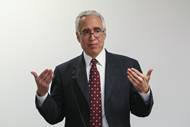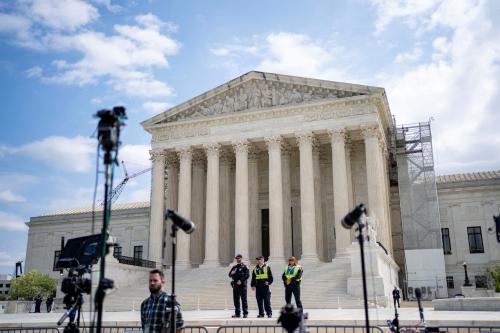The United States cannot win the war on terrorism or rebuild homeland security without a
fully dedicated federal civil service. Unfortunately, federal employees report that both the
quality of their work life and their level of job satisfaction have declined since September 11.
Fewer federal employees are coming to work for the right reasons, even fewer feel their agencies
are providing the tools and training to do their jobs well, and even fewer still believe that their
organizations are doing a good job at delivering programs and services.
The evidence comes from a unique pre- and post-September 11 survey of the same
random sample of federal government employees. The first telephone survey of 1,051 randomly
selected employees was taken from February-June, 2001, while the second survey of 673 of the
same employees was taken from March-May, 2002. Both surveys were conducted by Princeton
Survey Research Associates on behalf of the Brookings Institution’s Center for Public Service.
Interviewed at home, not on the job, these employees were given a rare chance to be completely
candid about life in their organizations.
According to the surveys, federal employees grew less satisfied with their jobs over the
past year. They also reported lower morale among their co-workers, continued difficulty
securing the resources they need to do their jobs well, growing uncertainty regarding the link
between their work and the mission of their agencies, and less trust in their own organizations to
do the right thing. Finally, federal employees perceived a significant increase in the number of
layers between themselves and the senior leadership of their agencies. Although some of these
trends were small in percentage terms, they were statistically significant nonetheless, and
definitely moving in the wrong direction for a healthy public service.
All federal employees were not equally dissatisfied, however. Defense Department
employees were more likely to say they were given a chance to do the things they do best in
2002 than they were in 2001, and reported improved performance among their peers. They were
also more likely to say that their organizations provided enough employees to do their jobs well,
and that they felt a greater sense of purpose in the wake of September 11.
Not all the trends were positive in the Defense workforce, however. Defense employees
were almost as likely as their non-Defense peers to report declines in both their opportunity to
accomplish something worthwhile, and morale among their co-workers over the past year. Fewer
said they contributed a great deal to their organization’s mission in 2002 than in 2001, and more
said that their organizations do not always provide enough training to do their jobs well…
Full Report (PDF 230KB)



